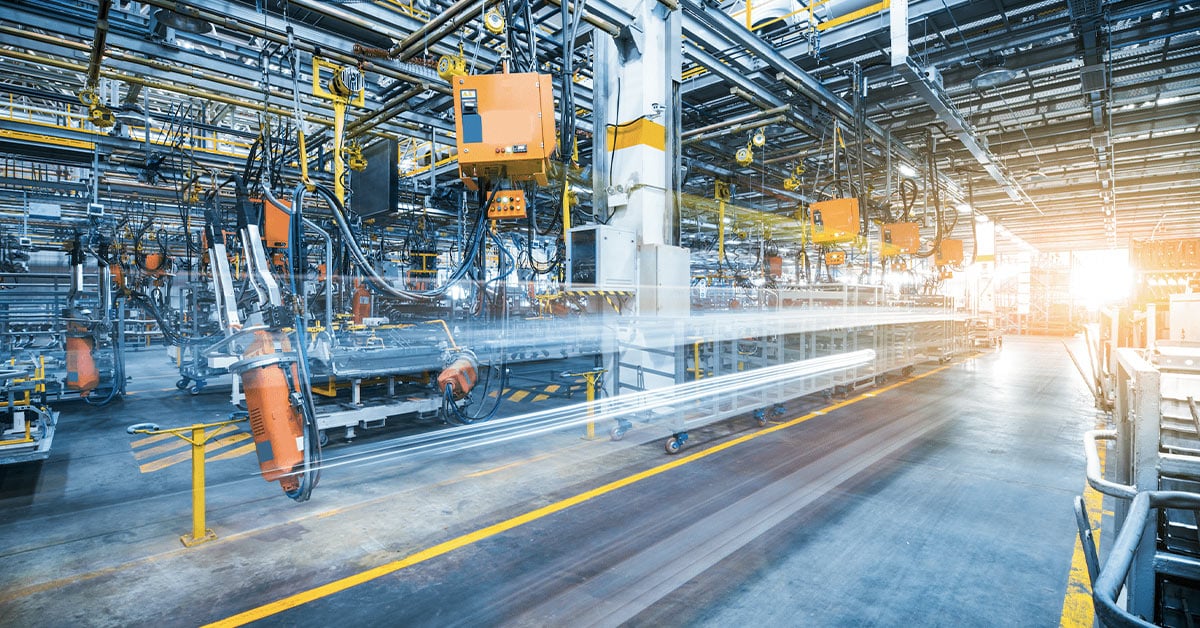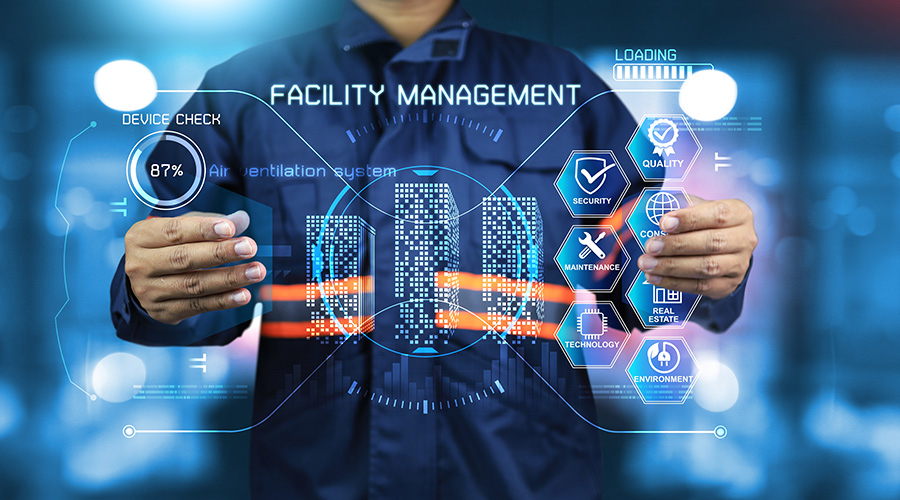Comprehensive Guide to Facility Management for Services
Comprehensive Guide to Facility Management for Services
Blog Article
Trick Trends Shaping the Future of Facility Administration in 2024
As we look in advance to 2024, the landscape of center management is poised for considerable transformation, driven by several essential fads. The assimilation of smart building innovations and a change towards data-driven decision-making pledge to improve operational efficiency while focusing on sustainability in method. The introduction of crossbreed work versions is improving office atmospheres, necessitating innovative design solutions that cater to progressing worker requirements. Amidst these modifications, the concentrate on passenger health remains to obtain grip, emphasizing the importance of a healthy workplace. Just how these fads will manifest in practice stays an important inquiry for sector professionals.
Smart Building Technologies

Smart structure innovations encompass a broad selection of systems, consisting of intelligent lighting, cooling and heating controls, and security systems. By incorporating these systems, facility managers can check and adjust parameters in real-time, leading to significant decreases in power waste and functional expenses. Smart sensing units can spot occupancy degrees and adjust lights and temperature level appropriately, guaranteeing that energy is just utilized when essential.
In addition, these modern technologies promote boosted data collection, enabling companies to track usage patterns and recognize chances for additional improvements. The application of wise building modern technologies not just adds to sustainability objectives but likewise creates much healthier workplace that can boost staff member efficiency and fulfillment.
As we move right into 2024, the adoption of wise structure innovations will likely accelerate, mirroring a broader change towards even more intelligent, receptive, and sustainable facility administration practices.
Data-Driven Decision Making
Progressively, organizations are leveraging data-driven decision making to boost facility administration practices. By utilizing data analytics, facility supervisors can derive workable understandings that considerably boost functional effectiveness and source allowance. The assimilation of sophisticated technologies, such as IoT sensing units and real-time monitoring systems, allows the collection of vast amounts of information on building performance, tenancy prices, and power consumption.
This wide range of information allows center managers to identify trends, anticipate upkeep demands, and proactively address problems before they intensify. Predictive analytics can forecast devices failings, decreasing downtime and fixing costs. Additionally, data visualization devices assist in far better communication amongst stakeholders, making certain that informed decisions are made collaboratively.
In addition, data-driven approaches improve calculated preparation by making it possible for center supervisors to analyze the effectiveness of present techniques and make educated selections pertaining to investments in technology or facilities. As organizations increasingly focus on functional excellence, data-driven choice production is positioned to end up being a cornerstone of effective facility monitoring strategies in 2024 and past. Eventually, the ability to leverage information properly will equip organizations to create more effective, productive, and resilient facilities.
Sustainability and Environment-friendly Practices
The emphasis on data-driven decision making naturally lines up with the growing emphasis on sustainability and eco-friendly methods within facility management. As companies progressively prioritize ecological obligation, facility supervisors are leveraging analytics to enhance source use, decrease waste, and minimize carbon impacts. This critical technique enables the integration of energy-efficient systems, such as LED lights, smart cooling and heating controls, and eco-friendly power resources into center procedures.
Additionally, the implementation of sustainable techniques prolongs past energy intake. Facility supervisors are adopting green materials and promoting reusing campaigns to develop a round economic climate within their centers. This not only boosts the environmental account of the organization but also cultivates a culture of sustainability among staff members.
Compliance with ecological policies is an additional important aspect driving the adoption of environment-friendly practices. By making use of data analytics, center supervisors can keep an eye on conformity metrics and determine locations for renovation, guaranteeing adherence to regional and worldwide sustainability standards.
Crossbreed Work Designs
A substantial change towards hybrid job versions is improving the landscape of facility management in 2024. This paradigm incorporates remote and in-office work, requiring a reevaluation of room application, source allocation, and employee interaction methods. Organizations are significantly recognizing the significance of versatile work areas that deal with varied demands and preferences.
Center managers need to adapt by applying versatile workplace designs that support joint efforts while giving areas for concentrated work. This consists of the integration of innovation to facilitate seamless communication and cooperation among in-office and remote employees. Smart building options, equipped with sensors and analytics, permit real-time tracking of room usage, enabling companies to enhance their settings effectively.
In addition, crossbreed job designs emphasize the demand for efficient center administration that prioritizes staff member experience. In significance, the hybrid job model is revolutionizing center administration, encouraging an aggressive technique to meet the developing demands of look at this now the labor force.
Enhanced Owner Health
As companies accept hybrid job versions, a heightened focus on resident health is becoming integral to facility management strategies. Facility Management. This change identifies that a satisfied and healthy labor force straight influences performance and retention prices. Facility supervisors are currently prioritizing environments that advertise physical and psychological health, incorporating elements such as all-natural illumination, biophilic style, and accessible wellness resources

Modern technology plays an essential duty in this evolution. Smart structure systems can monitor ecological elements and adjust settings in real-time, making certain optimal comfort levels - Facility Management. Furthermore, responses mechanisms, such as tenancy sensors and staff member studies, allow facility managers to consistently fine-tune wellness campaigns based upon resident requirements.

Conclusion
In 2024, the future of facility monitoring will certainly browse this site be significantly affected by the integration of smart structure modern technologies and data-driven decision-making, fostering enhanced functional efficiency. Sustainability efforts will focus on eco-friendly techniques, while the emergence of crossbreed work models will require adaptable office designs. A heightened emphasis on resident health with advanced Heating and cooling systems and biophilic style will certainly contribute to much healthier work environments. These patterns collectively highlight the progressing landscape of facility management in reaction to modern challenges and chances.
Center managers are advertising and adopting eco-friendly products reusing efforts to produce a circular economic climate within their centers.A considerable change towards hybrid work versions is improving the landscape of facility monitoring in helpful resources 2024.Additionally, hybrid job designs emphasize the demand for reliable center management that focuses on worker experience.As organizations welcome hybrid work designs, a heightened emphasis on occupant health is becoming integral to center administration techniques.In 2024, the future of center administration will certainly be significantly affected by the assimilation of smart building innovations and data-driven decision-making, fostering boosted operational effectiveness.
Report this page